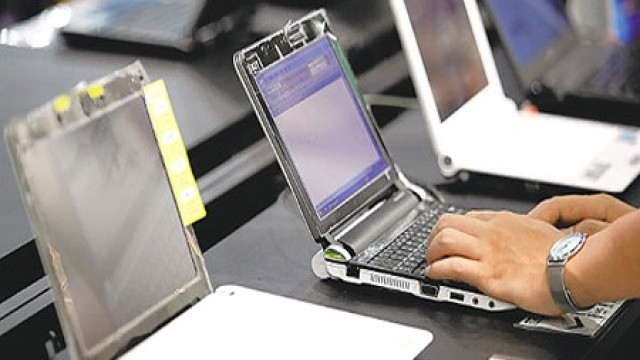Cracking crime: After years on the job, cops learn the ABCs - in a video game
The UN Office on Drugs and Crime has set up 24 training centres in Pakistan.

Pakistan’s police officers – who have often complained of the lack of training and support – will finally get to hit the books this year as the United Nations Office on Drugs and Crime (UNODC) is stepping up with support.
The UNODC aims to help train thousands of police officers and open up to 40 online learning centres around the country by the end of the year.
The police force’s lack of training has often been cited as the reason for its inability to solve cases or tackle crime. A 2011 United States Institute of Peace report found that there is no “nationwide integration in terms of training standards and coordination” for the country’s police force.
That may change with the UNODC’s tried-and-tested initiative. Its e-learning courses have been implemented in 50 countries. The law enforcement courses aim to increase police productivity in a vast area of expertise, from a low level constable’s duties to advanced level forensics and administration.
The training applies to regular police and law enforcement agencies such as the Federal Investigation Agency, Special Investigation Unit and the Anti-Violent Crime Cell. The training centres’ labs will have computers outfitted with the UNODC’s software, which comprise 92 modules of interactive training in areas such as crime scene management and investigation techniques, forensics, interrogation, signature verification, riot control, search procedures and evidence collection.
According to the UNODC, 24 centres have already been established in Pakistan and just six of them have trained approximately a little over a thousand officers.
Centres have already been set up in Karachi at the Saeedabad police training centre and at the directorate general of training and research.
According to SSP East Niaz Khosa, “Units will be set up in all five Karachi districts. This training will be useful for our officers and the technology will be helpful.”
While one aim of the programme is law enforcement on the street, those running it think it can have a far-reaching impact to the courts as well.
“This programme is also about administering justice and being able to build cases,” says Jeremy Douglas, the UNODC Special Representative to Pakistan. Douglas mentioned that crime scenes in Pakistan are often compromised if they are not effectively cordoned off in time.
This has been a sore point in Pakistan – the site at which former prime minister Benazir Bhutto was assassinated in Rawalpindi was washed off, which severely compromised the investigation. Karachi also has notoriously low conviction rates for reasons ranging from lack of evidence to the absence of witness testimony, given that there is no witness protection mechanism. The intimidation of the judiciary and political pressure on the police has also contributed. Better police training can help make a portion of these cases harder to dismiss.
Douglas says the software is designed in an interactive manner similar to a video game. For example, the software will recreate the scene after a bomb blast and the trainee has to complete a process of investigation and then his scores can be saved and monitored. A before-and-after score can then be evaluated by his superiors. The number of hours each trainee has clocked is also recorded. The software won’t present an unfamiliar picture as the UNODC has translated it into Urdu and Pashto to localise it and has transformed the images to match local situations.
The police do not need to scramble for resources for the programme. UNODC Programme Officer Saad Ayub describes it as the “complete package” as the centres are set up entirely by the UNODC, including the computers, renovation, generators and air conditioners.
Khosa said that the police are looking forward to receiving technological assistance from the UNODC. “We still do manual signature verification in most cases here. We are hoping for technology that has a computerised verification system, which doesn’t require the person to be present or have manual comparisons of signatures.”
The UNODC is also helping fix a widely ignored problem after the floods in Sindh – rehabilitating police stations across disaster-hit areas in the province. “Entire police stations were destroyed, vehicle fleets wiped out and yet the police are still expected to be mobile and continue doing their job in flood-affected areas,” said Douglas. Despite the disaster, Douglas said the police are expected to keep up with their duties and escort aid workers.
The UNODC programme will continue into 2014 when it expects to have all the centres set up across Sindh and the rest of the country.
Published in The Express Tribune, February 3rd, 2012.



















COMMENTS
Comments are moderated and generally will be posted if they are on-topic and not abusive.
For more information, please see our Comments FAQ